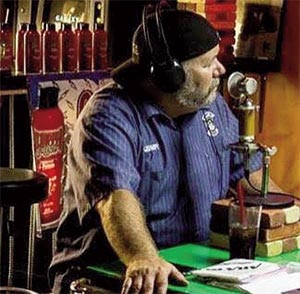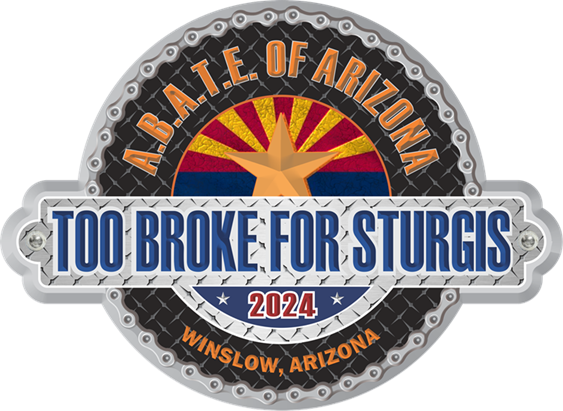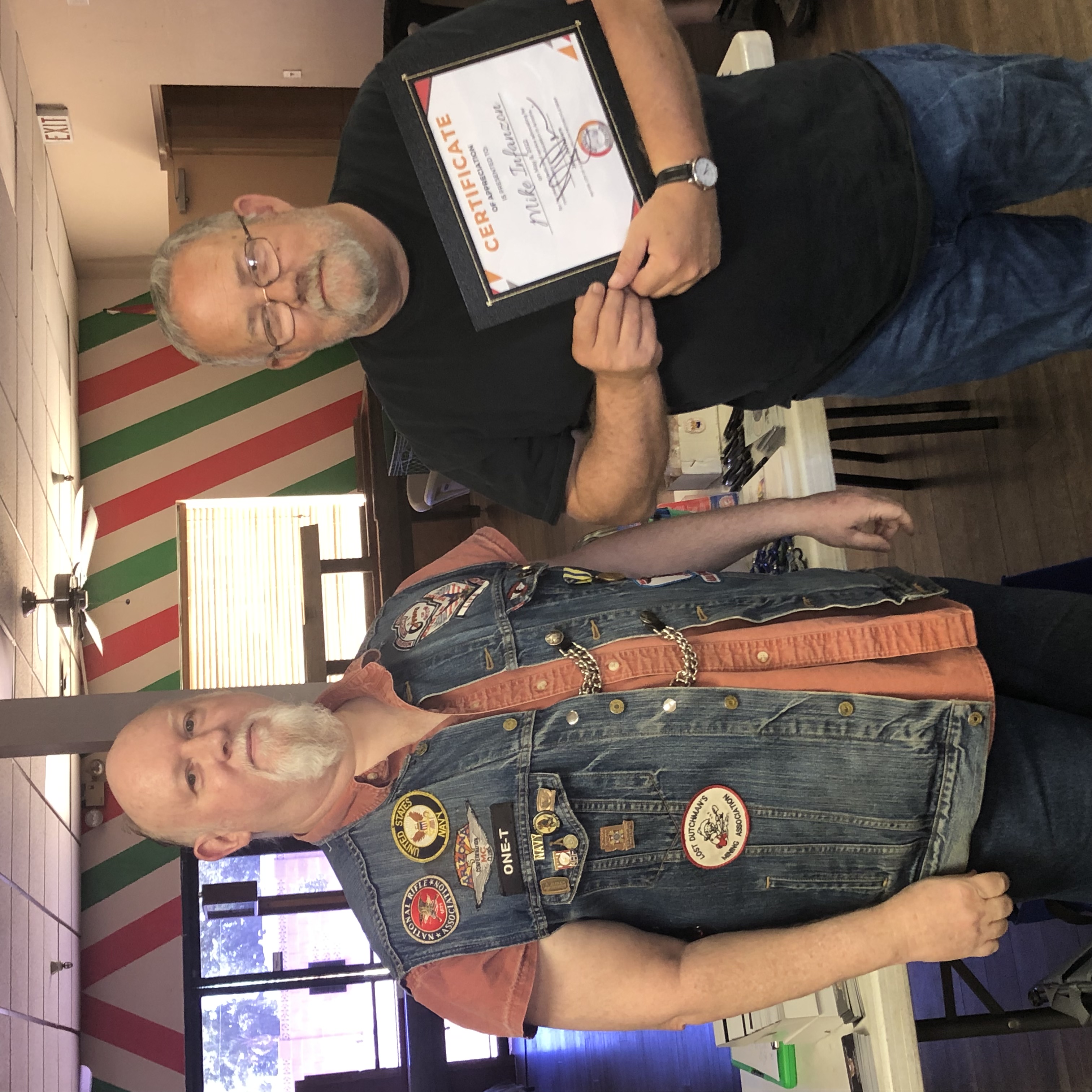
This session has been an interesting one. We have been able to kill a few really bad bills and still attempting to get some positive legislation passed
and onto the Governor’s desk. This list is only the transportation related bills but if you go to the ABATE of Arizona website under Legislative/Legislative Update you can find the entire list of relevant bills you may be interested in.
BILLS STILL IN PROCESSSB1312 Vehicle mileage; tracking; tax; prohibitions
This state, counties, municipalities, and political
subdivisions are prohibited from establishing vehicle miles of travel reduction goals or targets in
developing any transportation or land use planning
or selecting transportation or transit projects. This
state, counties, municipalities, and political subdivisions are prohibited from tracking or maintaining a
record of a person's vehicle miles of travel. This state, counties, municipalities, and political subdivisions are prohibited from imposing or collecting any
mileage fee or tax, a per-mile charge, fee or tax or any
tax or fee based on vehicle miles traveled by an individual in a motor vehicle.
SCR1018 Prohibit tax; monitoring; vehicle mileage.The 2024 general election ballot is to carry the question of whether to amend the state Constitution to prohibit the
state, counties, municipalities, or other political subdivisions from imposing a tax or fee on any person based on vehicle miles traveled or imposing any rule or law to monitor or limit the vehicle miles traveled of a person in a motor vehicle.
HB2063 Appropriation; State Routes; 238; 347Makes a supplemental appropriation of $13 million from
the State Highway Fund in FY2022-23 to the Department
of Transportation to distribute to the City of Maricopa to
design and construct improvements to State Route 238
and/or State Route 347. Reduces the FY2022-23 appropriation from the State Highway Fund to the Department
of Transportation for the design to widen lanes along
State Route 347 between Interstate 10 and the City of
Maricopa to $6 million, from $19 million.
HB2080 Emergency alert technology; vehicles; devicesBeginning January 1, 2025, all new motor vehicles and portable wireless communication devices sold in Arizona
are required to contain "emergency alert technology" (defined).
HB2288 Roundabouts; right-of-way; large vehiclesThe operator of a vehicle or combination of vehicles with a total length of a least 40 feet or a total width of at least 10 feet may deviate from the lane in which the operator is driving to the extent necessary to approach.
SB1097 Truck routes; designationFor ordinances or resolutions enacted on and after January 1, 2020, the Arizona
Department of Transportation (ADOT) or a
local authority may only restrict or prohibit a "vehicle of legal size" (defined) from operating on a highway that is a "major arterial street" (defined) and that connects two or
more local jurisdictions if ADOT or the local authority conducts a test drive or applies a vehicle template on the highway that shows that a vehicle of a legal size may not safely operate on the highway. A highway that does not have a "truck restriction" (defined) before being annexed by a local authority
cannot be incorporated into an existing truck restriction that is passed on or after January 1, 2020 unless the highway meets the criteria in this legislation. A local authority that passed an ordinance on or after January 1,
2020 that is inconsistent with these provisions is required to repeal or amend the ordinance to comply with this act within 90 days after the effective date or the ordinance is invalid. AS PASSED SENATE.
SB1234 Prohibition; photo radarState agencies and local authorities are prohibited from using a photo enforcement system to identify violators of traffic control devices and speed regulations. Statutes
authorizing and regulating photo enforcement systems are repealed. Contains a legislative intent section.
FAILED BILLSSB1122 Transportation tax; election;
Maricopa countyIf approved by the voters at a countywide
election, a county with a population of 3
million or more persons (Maricopa) is
required to levy a tax of up to ten percent
of the transaction privilege tax rate as of
January 1, 1990. The tax levied will be in
effect for 15 years. Specifies the distribution of net revenues from the tax levy,
with 80 percent of revenues distributed to
the Regional Area Road Fund for freeways and other routes in the state highway system, and 20 percent of revenues
distributed to the Regional Area Road
Fund for major arterial streets. Beginning
January 1, 2026, a regional public transportation authority is established in a
county with a population of 3 million or
more persons that approves a county
transportation excise tax.
SB1245 VLT; cities and towns; countiesCounties and municipalities are required
to use vehicle license tax monies for purposes related to transportation.
SB1697 Highways; bicycle paths; walkways; prohibitionThe Arizona Department of
Transportation (ADOT) is prohibited
from accepting federal monies to pay for
the construction, maintenance or expansion of a highway or state route if the
acceptance of the federal monies is conditioned on the design and construction of a
bicycle path or pedestrian walkway as a
component of the highway or state route.
ADOT cannot plan, design or construct
bicycle paths or pedestrian walkways that
are parallel to and separate from a high- way or state route. Applies to a highway
or state route that exists before, on or
after the effective date of this legislation.
DISCUSSION ONLYSB1393 Off-highway vehicle user feesEstablishes the Off-Highway Vehicle Law
Enforcement Safety Fund (OHVLES
Fund), to be administered by the State
Treasurer and distributed in specified percentages to each of the county sheriff's
offices. Of the user fees collected from
off-highway vehicle use indicia, 30 percent must be deposited in the OHVLES
Fund, instead of in the Arizona Highway
User Revenue Fund.
VETOED BILLSSB1535 Transportation; 2023-2024.By July 31 of each year, the Arizona
Department of Transportation (ADOT)
would have been required to report to the
Joint Legislative Budget Committee
(JLBC) on the progress in improving
motor vehicle division wait times and vehicle registration renewal by mail turnaround times. By February 1 of each
year, ADOT would have been required to
report to JLBC staff how ADOT spent
ADOT's dedicated portion of an authorized third party electronic service partner's fee retention on an information technology system in the prior fiscal year. By
August 1 of each year, ADOT would
have been required to report to the JLBC
Director ADOT's share of fees retained in
the prior fiscal year by an authorized
third party electronic service partner that
has an authorized service website for
ADOT. Monies from the State Highway
Fund would have been prohibited from
being spent on projects that reduced the
capacity for motor vehicle travel. AS
VETOED BY GOVERNOR. In her veto
message, the Governor called this a
"purely-partisan budget" and expressed
her hope that elected officials will remain
open to bipartisan solutions for Arizona.
Mike InfanzonLegislative Director










 This session has been an interesting one. We have been able to kill a few really bad bills and still attempting to get some positive legislation passed
and onto the Governor’s desk. This list is only the transportation related bills but if you go to the ABATE of Arizona website under Legislative/Legislative Update you can find the entire list of relevant bills you may be interested in.
This session has been an interesting one. We have been able to kill a few really bad bills and still attempting to get some positive legislation passed
and onto the Governor’s desk. This list is only the transportation related bills but if you go to the ABATE of Arizona website under Legislative/Legislative Update you can find the entire list of relevant bills you may be interested in.